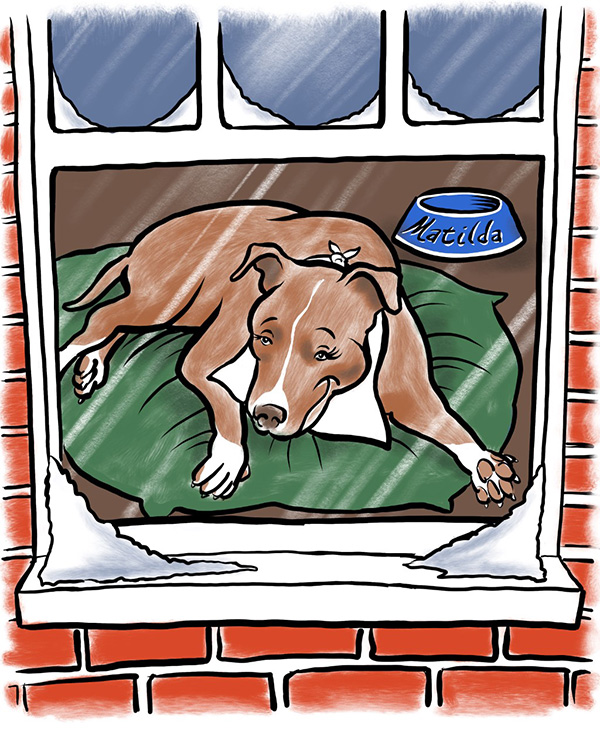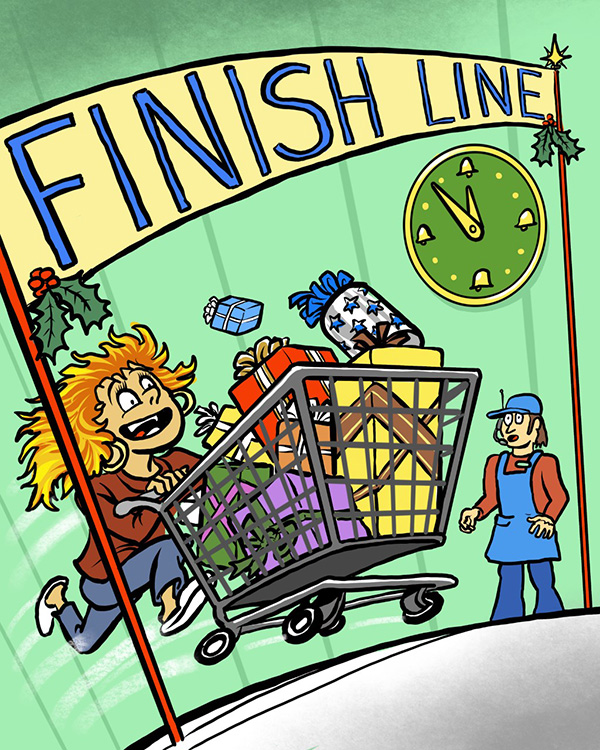Help! We are barreling toward the holiday season, and the brakes aren’t working. Know what I mean? The most wonderful time of the year can also be the most stressful.
The science tells us that all this stress can take a toll on our bodies and long-term health, but it doesn’t have to be this way. I reached out to some of the educators and researchers I’ve interviewed over the course of the year and asked them how they de-stress. Maybe some of these tips will work for you and yours.
NOTE: Reconnecting with leaders in the early-learning community has reminded me that it is a community, a supporting group of far-flung people who share best practices with each other and offer encouragement. The Early Learning Nation Facebook page is a vibrant virtual meeting place for our community. If you’re not already part of it, here’s your chance. The Twitter is pretty great, too!
1. “One of my favorite ways to de-stress is cuddling up and reading a good book with my children. Not only is it relaxing and fun for all of us, but at Too Small to Fail, we know that simple, everyday interactions like talking, reading and singing can have a lifelong positive impact on children’s early brain and language development.”
—Jane Park, Director, Too Small to Fail, the early learning program of the Clinton Foundation; read about her organization’s laundromat-based literacy programs
2. “All the events and busyness of the holidays can leave us stressed and exhausted. One of the things I like to do over the holidays is to block time to be intentionally unscheduled. This leaves room for all the spontaneous joys of being together with family and loved ones.”
—Leonetta Elaiho, Senior Program Manager, Students Rebuild; read my interview with her
 3. “I try to channel the energy of my 12-year-old adopted pit bull, Matilda Smalley. This involves taking long naps, staring out the window endlessly and eating lots of great food.”
3. “I try to channel the energy of my 12-year-old adopted pit bull, Matilda Smalley. This involves taking long naps, staring out the window endlessly and eating lots of great food.”
—Logan Smalley, founding director of TED-Ed and cofounder of Call Me Ishmael; read my interview with him
4. “When I ask children what they remembered about special times with their families, I found it was the small moments, not the big extravaganza, that matters. It was making cookies together—thinking of the silly shapes they could create and how they could decorate these cookies, rather than the presents, that lasted as memories. Additionally, when my own children were young, I asked each of them to come up with a charity that they wanted to donate time or money to. We had a family meeting to make selections. One year, they volunteered cooking meals for people who were sick or homeless and agreed that this was a gift that kept on giving.”
—Ellen Galinsky, Chief Science Officer, the Bezos Family Foundation, and Executive Director, Mind in the Making
5. “Recognize that the holidays can be a stressful time and be more forgiving of yourself and those around you.”
—Angela Duckworth, author of Grit: The Power of Passion and Perseverance and founder/CEO of Character Lab. Watch this space for my upcoming profile of her
6. “Build a tower or marble maze together with children, decorate holiday cookies while dancing to fun music or take a walk as a family. We’ve started taking a walk together (even in the winter), and it’s a great way to connect with your kids and hear what’s happening in their lives.”
—Megan McClelland; director of Oregon State University’s Hallie E. Ford Center for Healthy Children & Families; read her travel tips
 7. “Taking a full day away from all screens for a Tech Shabbat once a week during the holidays, creates space away from the holiday stress to reflect, recharge and refresh. After doing it for ten years with my family, I realize this pause from being available 24/7 to everyone and everything is like a super power to co-exist in our always on world…which is magnified during the holidays.”
7. “Taking a full day away from all screens for a Tech Shabbat once a week during the holidays, creates space away from the holiday stress to reflect, recharge and refresh. After doing it for ten years with my family, I realize this pause from being available 24/7 to everyone and everything is like a super power to co-exist in our always on world…which is magnified during the holidays.”
—Tiffany Shlain, founder of Let it Ripple and author of 24/6: The Power of Unplugging One Day a Week; read my interview with her
8. “Go with the flow and don’t let time or an annoying relative stop you from feeling grateful and peaceful.”
—Faith Lamb-Parker, director of research, culture, and equity, Simply Put; read about We Count! A 2020 Census Counting Book
9. “Holidays bring with them stress and an abundance of what I use to de-stress… FOOD. So, I’ll try to add in some yoga between the gumbos.”
—Dr. Joia Adele Crear-Perry, founder of Birth Equity Project and Black Mamas Matter; read my interview with her about maternal health
 10. “Other people would find this very stressful… but I keep the holidays stress-free by doing ALL my holiday shopping in just one long day! That way it is one and done!”
10. “Other people would find this very stressful… but I keep the holidays stress-free by doing ALL my holiday shopping in just one long day! That way it is one and done!”
—Laura Justice, Executive Director, Crane Center for Early Childhood Research & Policy and Schoenbaum Family Center, The Ohio State University; read about what happened when she and her team strapped GoPro cameras onto the heads of preschool students
11. “Building strong relationships is good for your brain and wellbeing. Cut out distractions, slow down and spend some time focusing on the people in your life.”
—Marley Jarvis, Institute for Learning & Brain Sciences (I-LABS); read my story on her prizewinning video
12. “I love to take a page from the Icelandic tradition of giving books as our gifts and spending the holiday reading together—and talking about what we’re reading. That’s my idea of a perfect way to de-stress the holidays—and appeals to me on so many levels: unplugging from our devices; simplifying gift giving; and lighting our imaginations, whether that be with the latest science fiction, a mystery, biography, history, or something that simply makes you laugh out loud. And because we know that books are a luxury for so many families, we share the gift of reading by helping to bring books to kids who have little.”
—Kyle Zimmer, President, CEO and Co-founder, First Book; read my interview with her (don’t miss the part about oysters)





